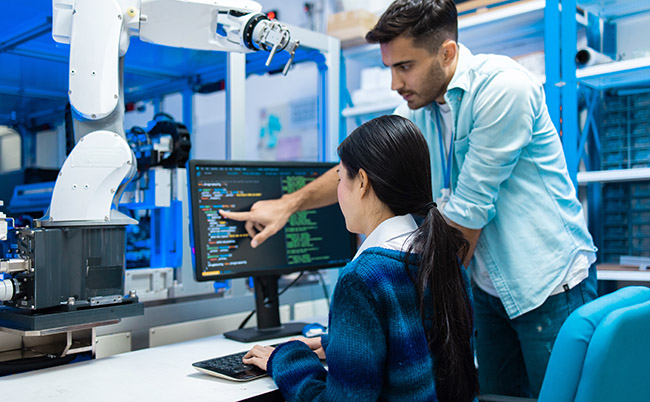
Implementation of AI and ML Solutions for Labs – Part 1
March 14, 2022
Key Benefits of Hyperconverged Infrastructure – Part 1
March 21, 2022Part 2 will discuss Levels of AI and Advanced Machine Learning.
Levels of AI
At its most basic function, AI (artificial intelligence) is capable of performing simple tasks and determining basic logical assumptions. In light of perpetual advances in technology, this will soon be obsolete. Research has found that currently, our brain is better at processing equations of greater complexity than basic AI systems.
ML (machine learning) will raise AI to higher levels of usage. Through constructing empirical data-based models, ML is able to handle problems that are more complex and multi-dimensional. ML makes new technology like Apple’s voice-activated assistant Siri and Tesla’s self-driving vehicles possible.
ML’s foundation is a four-step process, which first acquires data for modeling and training. Subsequently, data is normalized for building and utilizing the model that will undergo several iterations. Finally, patterns and predictions are made by interpreting and determining patterns revealed through the results of the model runs.
Advanced Machine Learning
As technology makes exponential advances daily, ML, which is also known as deep learning, is now being applied to crop research, pharmaceuticals, and other life science fields.
Going beyond AI’s analysis and interpretation of datasets, DL (deep learning) formulates novel approaches and solutions for scientific problems. DL is now considered integral foundationally for life science fields. Involved in AI research, DeepMind solved a scientific mystery that had gone unsolved for more than 50 years by finding the way to predict three-dimensional protein folding.
AI-based research and development allow the life science industry to implement ML to improve production processes and create a level of efficiency that humans by themselves can’t accomplish. Integrating ML-aided computational ability for research, a LIMS (laboratory information management system) can increase the efficiency of data management for complex workflows. Life sciences companies have especially benefited from deploying AI systems during the COVID-19 pandemic.
STARLIMS Integrated Solution
Implementing state-of-the-art technology, STARLIMS provides a totally integrated solution that incorporates LIMS, Electronic Laboratory Notebook (ELN), Scientific Data Management System (SDMS), Advanced Analytics, and Mobile within a single application. This innovation makes building and maintaining custom interfaces required by third-party tools unnecessary.
Alpha LIMS Implementation
Alpha has been involved with the implementation of over 50 LIMS systems ranging in size from small, “off-the-shelf” software systems to very large, highly customized, multi-functional systems, including STARLIMS, for both governmental agencies and private enterprises. For affordable client-focused network consulting services and solutions, please call Alpha today at (410) 295-9500.




